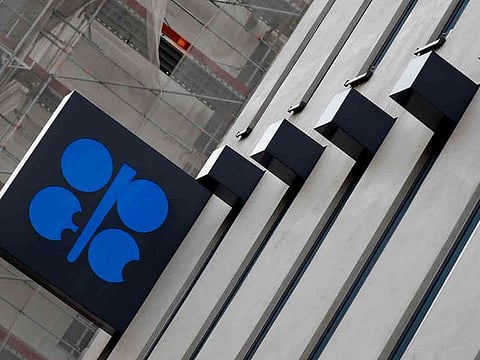OPEC+’s unified approach to production hikes serves a greater purpose
External pressures notwithstanding, OPEC+’s latest decision is the right one

The OPEC+ group decided – wisely enough - to raise oil output by 100,000 barrels per day at its meeting last week. Although this choice represented the interests of the group’s members as a whole, it was not what oil-consuming countries had hoped for after exerting so much pressure on oil producers to dramatically increase output.
The new OPEC Secretary-General Haitham Al Ghais clearly said that a modest increase in production provides producers with a greater opportunity to monitor prices. In fact, the solidarity seen among OPEC+ members is outstanding. They wanted to keep the supply and demand balance in the oil markets so that prices would stay at their present - and reasonable - levels, notwithstanding the differences in their political views.
Such cooperation had never been seen within OPEC itself, which was rife with disagreements that frequently caused the collapse of oil prices. This indicates that the decision to expand the membership to OPEC+ - with the addition of Russia, Kazakhstan, Azerbaijan, Mexico, Brunei, Bahrain and Oman - was the right one because it gave it more strength and flexibility to respond to changes in the oil markets. Therefore, maintaining unity within the group is crucial.
Despite the decline in oil prices by 10 per cent following the announcement of the modest output increase, it had nothing to do with the 100,000 barrel increase. The fall was accompanied by rising concerns that the global economy, particularly the bigger ones, would experience a recession. This is not the first time that such assumptions have had an impact on oil prices.
The same has occurred regularly over the previous few months as a result of the uncertainty surrounding the economic situation, which has been badly impacted by the COVID-19 outbreak and then the Ukraine war. Contradictory reports regarding recession projections will be released, as is the case with every drop, yet it’s possible that large economies’ energy consumption won’t be impacted.
Rather, it may have a greater impact on certain economies than others, which will keep oil prices stable at current levels, which are around $100 per barrel and have already somewhat recovered some losses at the beginning of this week by 3 per cent after positive data on the Chinese economy.
Solidarity pays
This highlights the steadfast approach adopted by the OPEC+ and its insistence on resisting pressures and adapting to the fundamental changes taking place in the relationship between oil-producing and oil-consuming nations. With OPEC+, things are quite different from the past, when occasional differences between OPEC group were used to influence decisions that did not truly represent the interests of producing countries. OPEC+ has strengthened their autonomy in deciding their own production levels, and the addition of other producing states has improved the group’s efficiency.
The group now controls 43 per cent of the world’s oil production, significantly increasing their capacity and success in managing the successive and rapid developments in the energy markets and the global economy as a whole. (OPEC countries were representing around 26 per cent of the world’s oil production.)
Since all of the group countries have realized benefits that may be obtained via collaboration to acquire fair pricing for their oil sales, it is anticipated the solidarity will continue to grow among them. This means if the global economy is found to be experiencing some stagnation and if demand for oil declines, member-states will act immediately to reduce production and prevent any imbalances between supply and demand that could result in a sharp decline in oil prices.
We are optimistic prices will remain at fair levels, as OPEC+ has become the captains steering the ship of the world’s oil markets, achieving invaluable gains for oil producing states. Therefore, this requires maintaining the cohesion and harmony of the group.
With OPEC+ taking over as the captain navigating the world’s oil markets and achieving priceless benefits for oil producing countries, we are hopeful prices will stay at reasonable levels. Hence, sustaining unity and harmony of member nations is paramount.



